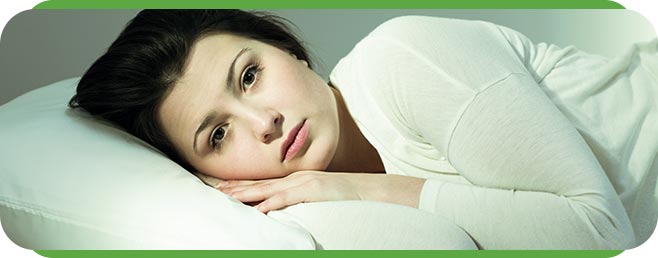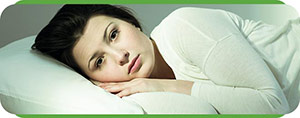What Triggers Sleep Disorders?
Sleep disorders can be triggered by a number of symptoms such as stress, anxiety, poor sleeping habits, medical conditions, aging etc. To prevent it, it is necessary to know the cause that is triggering it and then provide patient with comprehensive treatment. Contact our team of professionals at Koala® Center For Sleep & TMJ Disorder for more information or visit us online to book an appointment. We have convenient locations across the U.S. in Bloomington IL, Peoria/Dunlap IL, El Paso TX and Wausau WI.




Table of Contents:
What are the most common triggers causing sleep disorders?
Which hormone is known as a sleep trigger?
Who is most at risk for sleep disorders?
How do you fix sleep problems?
Many different factors can trigger sleep disorders, including:
• Stress and anxiety – Stressful life events, work-related stress, and financial worries can interfere with the ability to fall asleep or stay asleep.
• Poor sleeping habits – These include irregular sleep schedules, sleeping in an uncomfortable or noisy environment, or doing stimulating activities right before bed.
• Medical conditions – Sleep disturbances can be caused by sleep apnea, restless leg syndrome, chronic pain, and certain neurological disorders.
• Certain medications – Some medications, such as stimulants or antidepressants, can make it difficult to fall asleep.
• Substance use – Alcohol, caffeine, and nicotine use can all affect a person’s ability to fall asleep and stay asleep.
• Hormonal changes – Pregnancy and menopause cause hormonal changes that can interfere with sleep.
• Aging – Older people have more fragmented sleep and wake up more often during the night.
• Genetics – Some sleep disorders, such as narcolepsy and restless leg syndrome, have a genetic component.
The hormone melatonin controls the body’s sleep-wake cycle. Melatonin is produced by the pineal gland in the brain. Its levels rise in the evening in response to darkness. This rise in melatonin serves as a cue to the body that it is time for sleep, promoting drowsiness and getting the body ready for rest.
The body’s circadian rhythm, or internal biological clock, which regulates the sleep-wake cycle, is also controlled by melatonin. Circadian rhythm disturbances, such as those brought on by shift work or jet lag, can result in sleep disorders and other medical issues.
Melatonin supplements are often used to promote sleep for those who work night shifts, experience jet lag frequently, or have sleep disorders. However, it’s important to use melatonin supplements under the guidance of a healthcare professional, as they can have side effects and interact with other medications. Additionally, lifestyle factors such as exposure to light and regular sleep habits impact natural melatonin production and one’s ability to fall asleep.
Everyone, regardless of age, gender, and medical history, can suffer from sleep disorders. However, certain factors increase the risk of developing a sleep disorder. These factors include:
• Age – As we get older, our sleep patterns change. Sleep disorders like insomnia and sleep apnea are more common in older adults.
• Gender – Sleep disorders like insomnia and restless legs syndrome are more common in women than in men.
• Family history – Narcolepsy and other sleep disorders have a genetic component.
• Medical history – A higher risk of developing a sleep disorder is associated with certain medical conditions, such as obesity, heart disease, and depression.
• Lifestyle factors – Sleep disorders are more likely in people who have poor sleep habits, such as inconsistent bedtimes.
• Work schedule – Due to disruptions in their sleep-wake cycle, people who work night shifts or irregular hours are more susceptible to sleep disorders.
• Substance use – Using drugs, alcohol, caffeine, or nicotine can cause sleep problems.
The recommended treatment for sleep problems depends on the underlying cause of the problem. However, some common strategies used for sleep disorders include:
• Establishing a regular sleep schedule – It is recommended to go to bed and wake up at the same time consistently.
• Limit sleep-disturbing substances – Avoid or limit your intake of alcohol, nicotine, and caffeine, especially in the evening.
• Create a proper sleep environment – Ensure your bedroom is cool, quiet, and dark.
• Reduce screen time in the evening – Limiting exposure to stimulating activities, such as video games, before bedtime has been shown to improve sleep.
• Manage anxiety – Practice stress-relieving exercises like yoga, meditation, and deep breathing.
• Professional treatment – Seek medical attention if a medical condition prevents you from falling asleep, such as sleep apnea or restless legs syndrome. Medical professionals can treat complex sleep disorders. Treatment usually involves therapy and medications.

Additional Services You May Need
▸ KoalaKIDZzz®
▸ Sleep Apnea
▸ Snoring
▸ TMJ Disorder
▸ Fatigue
▸ Sleep Disorders
▸ Weight Loss
▸ CPAP Alternative
▸ Oral Appliances




